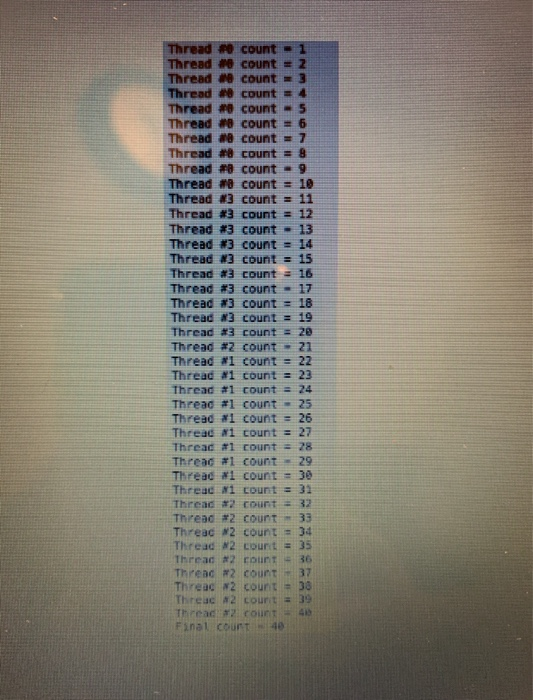Question
#include #include #include #define TOTAL_THREADS 4 int count; pthread_mutex_t the_mutex; // phread mutex variable void* myFunction(void* arg) { int actual_arg = *((int*) arg); for(unsigned int
#include
#define TOTAL_THREADS 4
int count; pthread_mutex_t the_mutex; // phread mutex variable
void* myFunction(void* arg) { int actual_arg = *((int*) arg); for(unsigned int i = 0; i
// Beginning of the critical region count++; std::cout
// End of the critical region // TODO: // Relinquish access to the Pthread mutex // since critical region is complete.
// Random wait - This code is just to ensure that the threads // show data sharing problems int max = rand() % 100000; for (int x = 0; x
int main() { int rc[TOTAL_THREADS]; pthread_t ids[TOTAL_THREADS]; int args[TOTAL_THREADS]; // TODO: Initialize the pthread mutex here count = 0; for(unsigned int i = 0; i
-
Modify the pthread-data-sharing-mutex-os-call.cpp program to apply a Pthread mutex solution, i.e., you will use Linux system calls to control access to the critical region. Refer to the prep materials for background info (section 2.3.6 in the textbook) and also to the Linux manual for the names and parameters of the functions. See https://linux.die.net/man/3/pthread_mutex_init The necessary changes will be very small, i.e., not a lot of code is needed.
Build and execute the updated program several times.

Step by Step Solution
There are 3 Steps involved in it
Step: 1

Get Instant Access to Expert-Tailored Solutions
See step-by-step solutions with expert insights and AI powered tools for academic success
Step: 2

Step: 3

Ace Your Homework with AI
Get the answers you need in no time with our AI-driven, step-by-step assistance
Get Started


